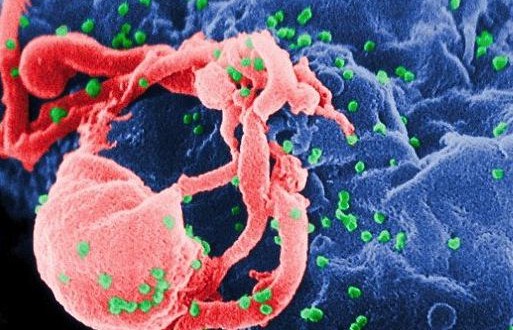A second baby born with the AIDS virus may have had her infection put into remission and possibly cured by very early treatment — in this instance, four hours after birth.
Doctors revealed the case Wednesday at an AIDS conference in Boston. The girl was born in suburban Los Angeles last April, a month after researchers announced the first case from Mississippi. That was a medical first that led doctors worldwide to rethink how fast and hard to treat infants born with HIV, and the California doctors followed that example.
The baby, born at Long Beach’s Miller Children’s Hospital, was given triple drug HIV therapy starting within 4 hours of birth to a mother with untreated HIV.
Tests at birth showed the presence of HIV DNA in the baby and testing 36 hours later — 32 hours after treatment was started — showed a plasma viral load of 217 copies per milliliter. A spinal tap when the child was 6 days old showed 32 copies of HIV RNA per milliliter of cerebrospinal fluid, Persaud reported.
But within days, almost all signs of HIV had disappeared. The plasma viral load, for instance, was and has remained undetectable, defined as fewer than 20 copies per milliliter.
Importantly, Persaud said, there is no indication that the child harbors a reservoir of “replication-competent virus” even if fragments of HIV RNA or DNA are present.
The child — unlike the Mississippi baby — has been kept on therapy, so investigators can draw no conclusions about whether the virus has been beaten permanently, Persaud said.
She told MedPage Today that there are no immediate plans to interrupt treatment for the Long Beach child, although her care team has initiated “conversations” about the issue with their institutional review board.
If there is “some consensus” that the anti-HIV medications should be stopped, it would happen when the child reaches age 2, she said. In the Mississippi case, the stoppage was inadvertent, after the child was lost to follow-up.
The two cases are a “signal that giving very early treatment to neonates really restricts HIV spread to the point where it is difficult to detect infection,” she said.
Persaud added that plans are underway for a prospective international clinical trial involving 54 infants who will be treated at birth or very soon after, with planned treatment interruptions at age 2.
The report is an additional signal that very early treatment might interrupt the “seeding” of the HIV reservoir, commented Elaine Abrams, MD, of Columbia University in New York City, who was not part of the study but who moderated a press conference at which some details were reported.
“How limiting the reservoir will relate to remission and cure is still to be tested,” she told MedPage Today. “What happens when this kid stops drugs — and I suspect they eventually will — will be interesting to see.”
Abrams noted that other studies have shown that starting therapy at 6 to 12 weeks of age is too late. “When you stop therapy at 2 years later, you get virus,” she said.
Agencies/Canadajournal
 Canada Journal – News of the World Articles and videos to bring you the biggest Canadian news stories from across the country every day
Canada Journal – News of the World Articles and videos to bring you the biggest Canadian news stories from across the country every day



